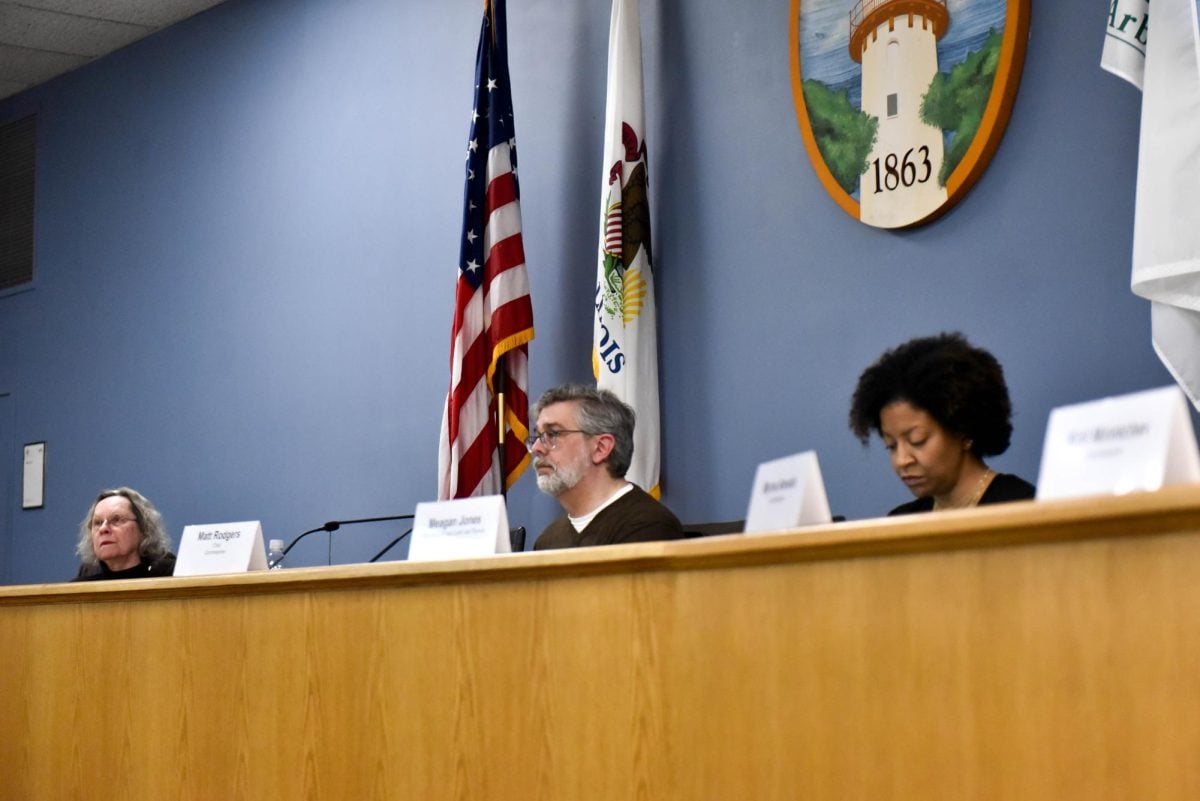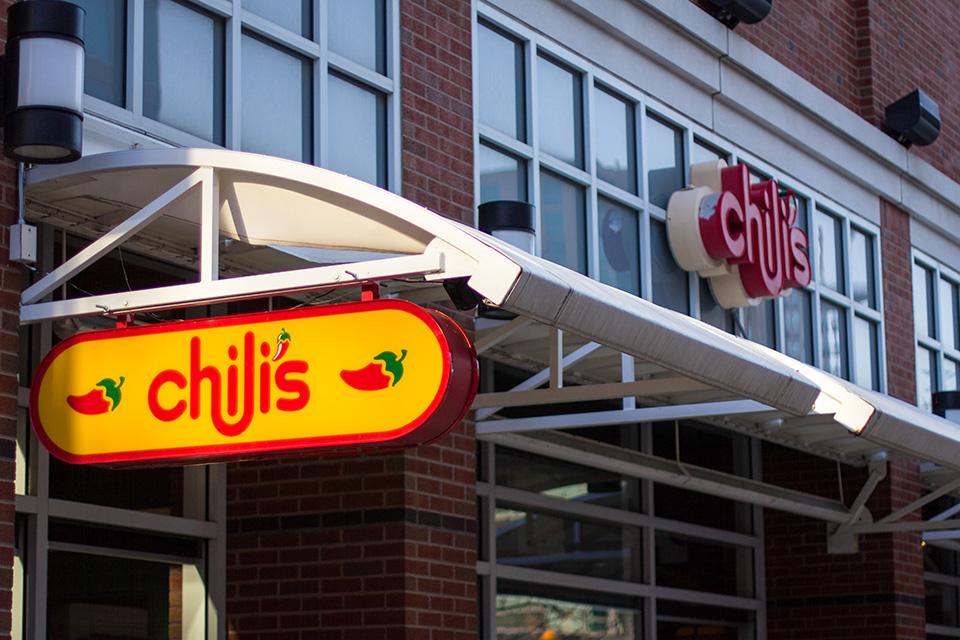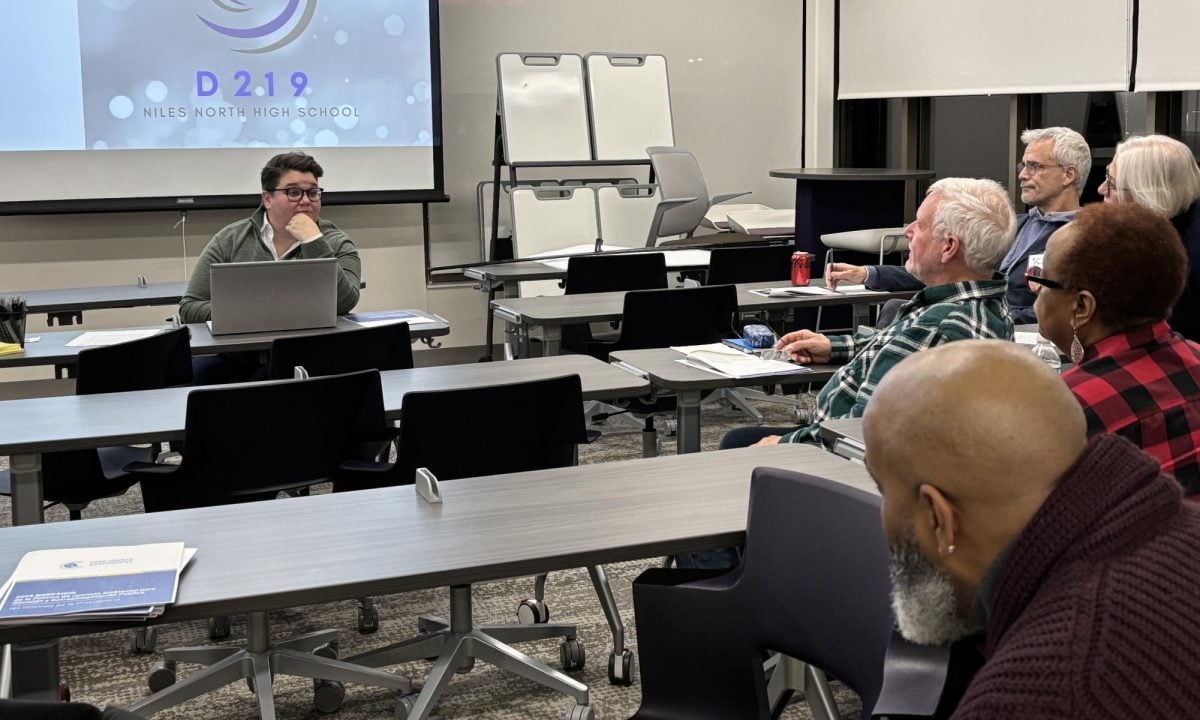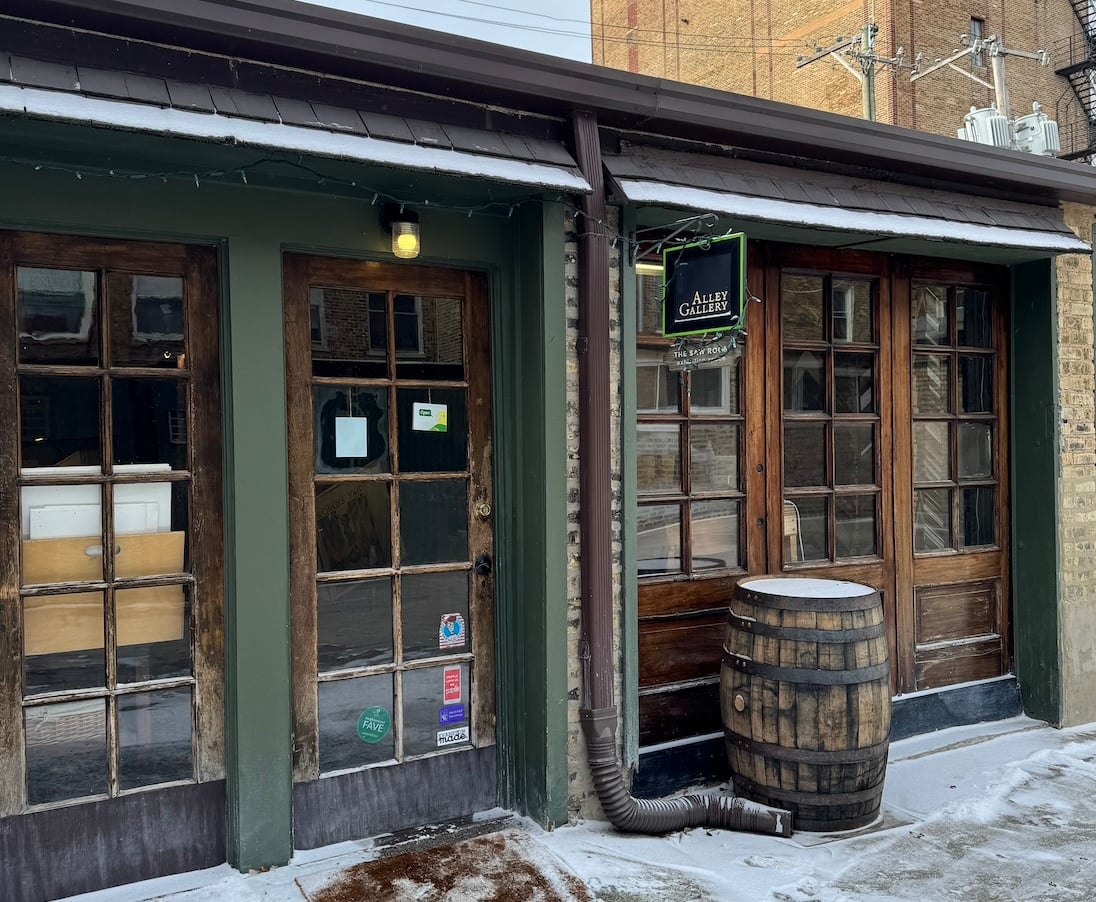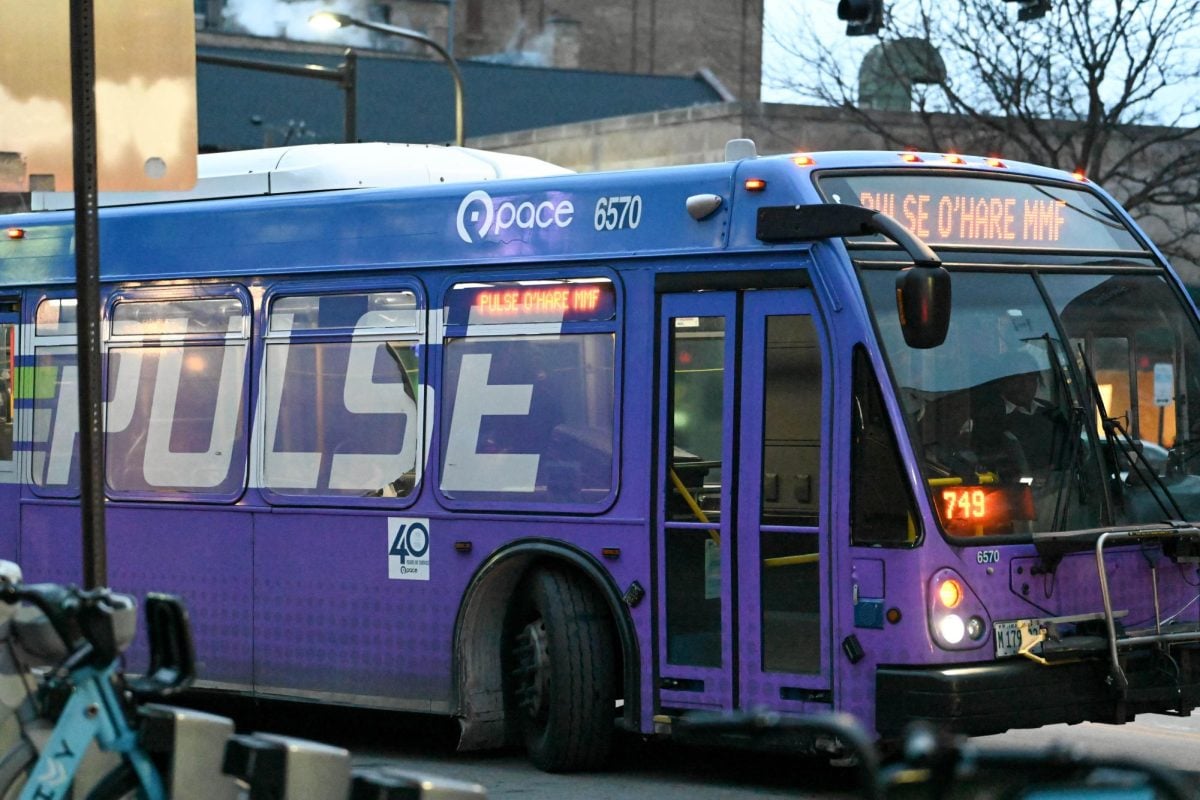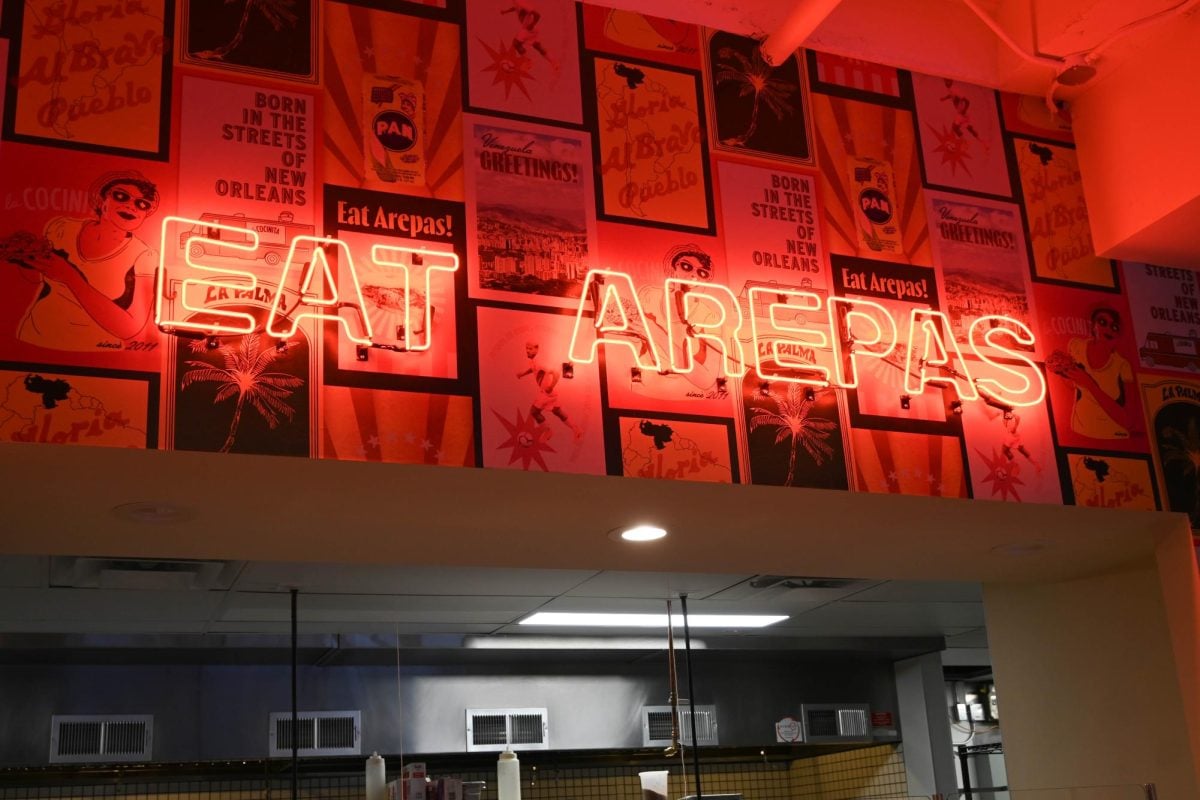As the frigid dusk fell above them, the voices of Evanston residents rose with dismay and a tinge of rage in a cozy downtown basement Thursday.
The residents had gathered over Mayor Daniel Biss’ once-nebulous project, Envision Evanston 2045. Unveiled as a transformative vision on everything from affordability to sustainability, the plan has quickly become a lightning rod.
Why, some residents asked, must it happen all at once — and now?
While the 1st Ward meeting took place beneath Orrington Avenue, the residents’ push against Biss’ vision has hardly stayed underground. Aghast at Envision Evanston’s brisk pace and sweeping proposals — such as nixing single-family zoning — the dissidents have organized against it.
They contend that Biss has finally met his match. And the dissidents have already notched their first victory.
After hearing an earful of criticism, City Council decided Monday to rein in Envision Evanston. It separated its two chief components and delayed the contentious rezoning to August. Jeff Boarini, challenging Biss for the mayoralty, cheered the decision.
The mayor had long maintained that the entire plan must happen at once and before the April 1 election. But Biss, who towers over Evanston’s politics, ultimately lauded City Council’s decision to deconstruct the timeline he’d once heartily endorsed.
Fighting fire with fire
Biss knows how to handle the heat. He sometimes flexes it.
In old campaign ads and in front of fellow Evanston political bigwigs, Biss has juggled flaming torches to attract donations or simply to entertain. He picked up juggling — even joining a circus — during his formative years in Bloomington, Indiana.
“I still bet that I’m the only person on here who ever had a paid job on a circus,” Biss told his City Council colleagues in April 2024. “Not a metaphorical circus.”
Claiming a grassroots pedigree as a mathematician-turned-state legislator, Biss previously angled for the governor’s mansion. He finished second in the 2018 Democratic primary behind current Gov. JB Pritzker.
The longtime left-wing political organizer soon set his sights on the Evanston mayoralty, scoring a landslide electoral triumph in 2021. But the circus Biss once trained for, or at least the heat, eventually arrived.
Northwestern’s bid to rebuild Ryan Field as a commercial venue rocked the Lorraine H. Morton Civic Center. Many of the football stadium’s neighbors fulminated. Its commercialization would despoil life in the peaceful 7th Ward, they argued.
In its initial October 2023 vote, City Council settled on a tie. Biss broke it.
Ahead of Biss’ vote in favor of NU, a scuffle broke out in the audience. Shortly after, the “Better than Biss” campaign launched to topple the mayor in his next election. Its founder, Parielle Davis, has turned her attention toward running for the open 7th Ward seat.
“If you draw corollaries with Ryan Field, we had the same situation where if it were not for residents making a big deal about the community benefits agreement, we wouldn’t have gotten it,” she told The Daily.
That pact between NU and the city did not satisfy many of the residents who had railed against the project. But as the Ryan Field debate shifted into a Chicago courtroom, Biss frequently lauded the deal and made it a central plank of his May State of the City address.
He had already inaugurated Envision Evanston that February. The same day as his speech, however, Biss’ most extensive explanation yet for his “bold” vision appeared on doorsteps around the city. In his Chicago Tribune op-ed that morning, Biss lamented the often intractable debates that define politics.
“As mayor, much of my job is striking a balance between these competing priorities,” he wrote. “But what if I told you that sometimes, by thinking differently, we can avoid tradeoffs altogether?”
His answer: Envision Evanston.

A dense debate
“It’s not too often that you come across a chance to advance so many different priorities at the same time rather than having to choose between them,” Biss told The Daily on Jan. 9.
Envision Evanston originally combined two items. It created a new comprehensive plan, which will guide city policymaking on everything from stormwater management to attracting families. And it rewrote the city’s zoning code, which dictates what sort of buildings can be built — and where.
The mayor strongly argued for integrating both initiatives. Rezoning the city would “ensure that the comprehensive plan is actually followed through on,” he said.
The new zoning code would eliminate single-family zoning across the city, allowing up to fourplexes to rise where single-unit homes stand today. The comprehensive plan further calls on allowing a wide range of housing in “all neighborhoods” and eliminating minimum parking requirements for new developments.
And the zoning code would loosen height requirements, meaning developers could propose a skyscraper of any height in parts of downtown Evanston, provided they adhere to floor-to-area ratios.
Envision Evanston’s convoluted plans arose from a similarly complex process. Though he has posed as the plan’s foremost spokesman, Biss said city staff have created its nuts and bolts, such as the elimination of single-family zoning.
“I didn’t know for sure it was going to be four, as opposed to three or two, as opposed to different numbers in different kinds of places,” Biss said. “That bubbled up from, again, a combination of the input we got from the community and the technical expertise of staff and consultants.”
Biss, too, stands among a number of Envision Evanston supporters. Evanston-based Connections for the Homeless has vocally advocated for the project, writing online that “by adding more homes, zoning reform means there are fewer losers in the housing game.”
A rising tide of residents swears otherwise.
At public meetings like Thursday’s 1st Ward gathering, residents have argued that loosening zoning requirements would unleash pricey developers on once-quiet neighborhoods around the city. They say that the changes will push out poorer longtime residents and fail to improve affordability.
“Evanston’s already very crowded by any reasonable standard,” Jeff Smith, an attorney and Evanston resident, told The Daily. “Adding not only population to that plate, but mass, is likely to have immediate effects.”
These residents see other avenues for building an affordable future for Evanston. In a statement to The Daily, Ald. Clare Kelly (1st) said the city should “establish mechanisms like land trusts or limited-equity co-ops to secure long-term affordability.”

The debates over Envision Evanston metastasized far beyond the merits of increasing density. Several residents lambasted the process — originally hurtling toward a March deadline for adoption — as rushed and its outcomes as predetermined. They rued what they see as a lack of transparency and hard data.
The mayor remained resolute. He recently told the Evanston RoundTable that “it is irresponsible — I would argue it’s immoral — to wait longer than necessary.”
“I do regret that turn of phrase,” Biss later told The Daily. “Hopefully, I’ll be more careful in this interview.”
But to Biss’ dissidents, the fight of his political life had already begun.
Envision to division
Monday dealt a delay, if not a blow, to the mayor.
Kelly, who helmed last week’s 1st Ward meeting and pushed to slow down Envision Evanston, has long scorned Biss. The two sparred over Ryan Field. Kelly said Biss “mocked” her over discussions around relocating the Civic Center. Their divergent visions have extended to Envision Evanston.
“Calling residents ‘immoral’ for speaking up and challenging this inadequate, hurried, and patched together comprehensive plan and zoning rewrite is counterproductive to crafting a document that should reflect genuine community engagement and support,” she wrote to The Daily.
Several vocal residents argued that the original March adoption deadline, ahead of the April 1 municipal election, seemed overtly political. Resident Eric Herman (Weinberg ’87), another Ryan Field foe, told The Daily that Biss is “not a guy who is receptive to dissenting points of view, and he is willing to become very sanctimonious when anyone resists him.”
On Monday, dozens of residents resisted, and the council obliged. The comprehensive plan will stick to the original timeline. But the council recommended that the zoning rewrite, now a separate item, be considered in August instead. Still, Biss struck a conciliatory tone during the meeting.
The mayor told The Daily on Tuesday that the council ultimately “struck a balance between two critical priorities: the need to do this right and acquire community input, and the need to act with urgency.”
Steve Hagerty, Biss’ mayoral predecessor, told The Daily that Biss likely “calculated” that his vision would eventually have to look different. Boarini, meanwhile, lauded the decision — and the resistance.
“Mayor Biss was forced to back down last night from the rushed Envision Evanston timeline he was trying to impose on the City of Evanston,” Boarini wrote in a statement. “Concerned Evanston residents made their voices heard. I hope that, going forward, he understands that honestly listening to constituents is better than lecturing them on morality.”

When told Tuesday about his challenger’s statement, Biss laughed. He maintained that he, too, would applaud the council for the decision.
And earlier, in response to Boarini’s December statement asking Biss to “stop and think” about Envision Evanston, the mayor hinted that his opponents had made it political.
“It’s a real shame to try to politicize this project,” Biss said last week. “Disappointing, honestly. You know, the politically safe thing to do is always nothing. I don’t think that’s what I was elected to do, though. I don’t think that’s what the people of Evanston want.”
Biss has meanwhile bolstered his six-figure war chest. According to state records, recent donations include $6,900 from Chicago Cubs co-owner Laura Ricketts and $5,000 from the Mid-America Carpenters Regional Council, a politically active builders union.
His upcoming campaign, Biss said, will reflect successfully pushing reforms, passing budgets without property tax increases and “making Evanston fun as well.”
Now he faces the task of convincing a city that spurned his vision for “urgent” action. The veteran political tactician has less than three months.
Dov Weinstein Elul and Hannah Webster contributed reporting.




